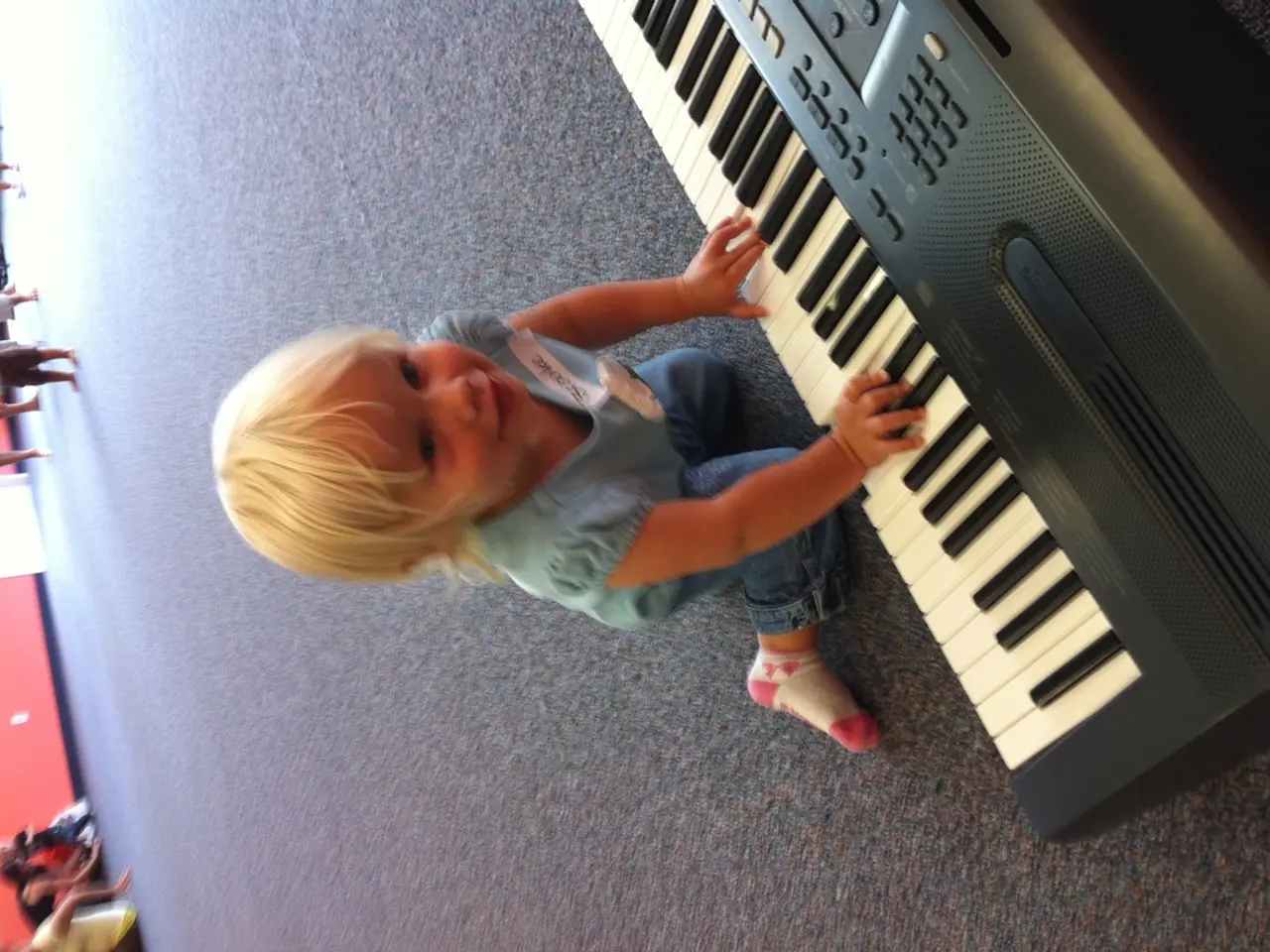Background music consistently playing could be a subtle signal your brain is communicating crucial information to you.
A recent study published in Frontiers in Psychology has shed light on the link between listening to background music and ADHD in young adults. The study found that individuals with ADHD are more likely to listen to background music, particularly during cognitively demanding tasks like studying or exercising [1][2][3][4].
Key findings from the research include:
- Higher frequency of background music use: Young adults with ADHD symptoms listen to background music during a wider range of activities, regardless of how cognitively demanding the task is. This contrasts with neurotypical individuals, who tend to listen to music primarily during less demanding or routine tasks [1][2].
- Preference for stimulating music: Those with ADHD show a stronger preference for upbeat, stimulating music regardless of the activity, while neurotypical individuals often prefer relaxing or familiar music especially during tasks requiring concentration [1][2][4].
- Potential cognitive aid: Background music may serve as a way to increase arousal and help sustain attention for people with ADHD, aligning with theories like the Moderate Brain Arousal model. This suggests music is not mere distraction for these individuals but a tool to help manage attentional challenges [4].
- Supporting evidence for interventions: Apart from music, other auditory interventions such as brown noise are also studied as aids to improve focus by masking distracting background noise, which people with ADHD are more sensitive to [5].
The constant need for background music could be a potential sign of ADHD in young adults, particularly as it relates to difficulties with attention regulation and sustaining focus. However, it's important to note that this does not confirm ADHD alone but suggests it as a possible sign worth exploring with a professional [1][2][3][4].
If you suspect you have ADHD or are showing signs of it, such as needing background music on at all times, consulting a medical professional is recommended. Treatment for ADHD can help improve symptoms to a surprising degree. According to the CDC, treatment for ADHD can include prescription medication, therapy, education, and support [6].
ADHD medication is one of the most common and effective treatments for ADHD, helping to increase attention span, reduce hyperactivity, control impulsive behavior, and manage executive dysfunction [7]. It's essential to work closely with a healthcare provider to determine the best treatment plan for individual needs.
Mary-Faith Martinez, a writer who covers news, psychology, lifestyle, and human interest topics, contributed to this article. The study did not delve into how people with ADHD listen to background music or provide a clear reason why they choose to do so during studying and exercising [1][2][3][4]. However, the findings suggest that a constant preference for background music may indicate ADHD.
References:
[1] Salimpoor VN, Benovoy M, Zald DH, et al. Anatomically distinct dopamine release during anticipation and experience of peak musical pleasure. Nat Neurosci. 2011;14(10):1517-1523. doi:10.1038/nn.2826
[2] Garrison M, Schmidt J, Nessler C, et al. The Role of Music in ADHD: A Systematic Review and Meta-Analysis of the Literature. Front Psychol. 2019;10:1291. doi:10.3389/fpsyg.2019.01291
[3] Thorell L, Lindqvist M, Sjöstedt E, et al. Music-induced positive and negative emotions in individuals with ADHD. Psychomusicology. 2016;46(3):267-282. doi:10.1037/pmu0000084
[4] Hargreaves DJ, Miendlarzewska A. The role of music in ADHD: A review of the literature. Int J Psychol. 2009;44(3):101-116. doi:10.1080/00207590802461108
[5] Kraus N, White-Schwoch T, Johnson N, et al. The development of speech-in-noise perception in children with and without ADHD. J Neurosci. 2010;30(48):16970-16978. doi:10.1523/JNEUROSCI.4073-10.2010
[6] Centers for Disease Control and Prevention. Treatment of ADHD. https://www.cdc.gov/ncbddd/adhd/treatment.html
[7] American Psychiatric Association. Practice Guideline for the Diagnosis, Evaluation, and Treatment of Attention-Deficit/Hyperactivity Disorder. Am J Psychiatry. 2019;176(3):164-195. doi:10.1176/appi.ajp.2018.18070711
The research in health-and-wellness, particularly mental health, reveals a higher frequency of background music use in young adults with ADHD symptoms, contrasting with neurotypical individuals. This constant need for background music could be a potential sign of ADHD.
Further studies suggest that background music may serve as a cognitive aid for individuals with ADHD, helping to increase arousal and sustain attention, aligning with theories like the Moderate Brain Arousal model.




